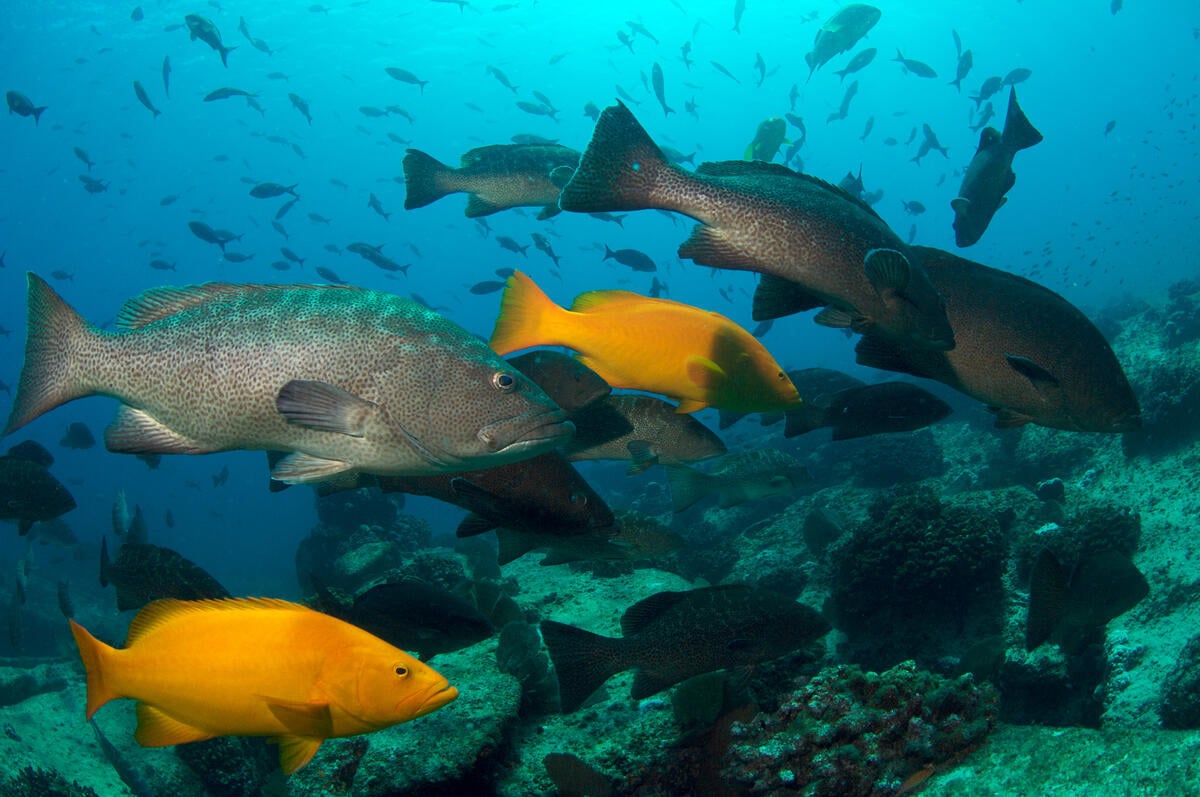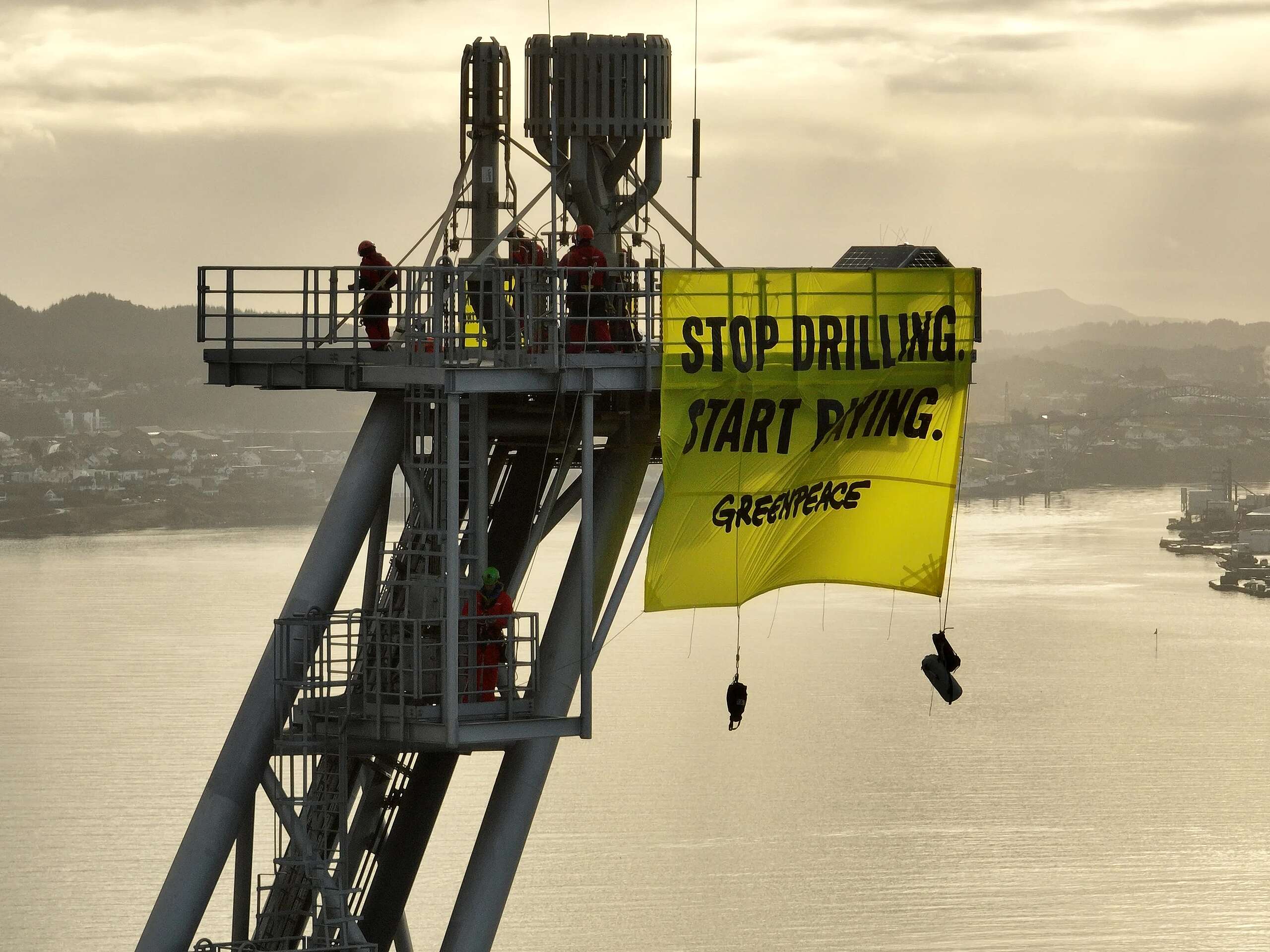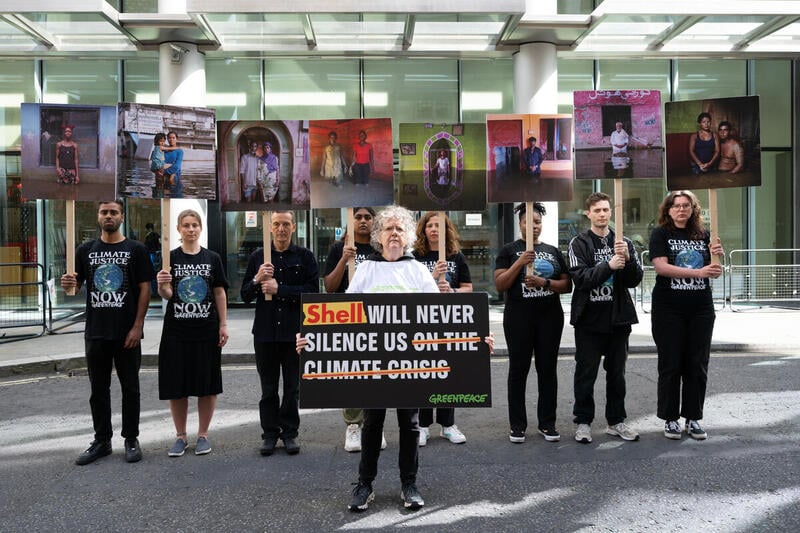Beirut, Lebanon – Without a swift resolution, an explosion or leak from the rusting oil tanker FSO Safer off the coast of Yemen could trigger one of the biggest oil spill disasters in history. According to a new study produced by the Greenpeace Research Laboratories, the impacts could be much wider, more severe and longer lasting than thought from previously available information. If all the oil is spilled it would be four times bigger than the Exxon Valdez, causing widespread severe environmental damage and exacerbating the humanitarian crisis unfolding in Yemen and affecting neighbouring countries.
The FSO Safer is a rusting tanker with over 1.1 million barrels (over 140,000 tonnes) of Marib light crude oil on board anchored in the Red Sea just 6 km (4 miles) off the coast of Yemen, where one of the world’s worst humanitarian disasters is unfolding. The vessel is at risk of exploding or spilling its oil cargo. Negotiations have so far failed to resolve how to secure the cargo and ship, which has been left without maintenance for the past seven years. Vital fire fighting and prevention equipment and the ship’s generators are not working.
Ahmed El Droubi, Campaigns Manager at Greenpeace MENA, said: “The abandoned tanker, with its toxic cargo of crude oil, poses a grave threat to the communities and environment of the Red Sea. The Safer can only be made safe by removing the oil from the ship into another vessel or vessels. Despite the difficulties, financial and political, we urge the United Nations and all the parties and governments in the region and elsewhere to prioritise this effort. Action to prevent a major disaster, or at least mitigate its impact, can no longer wait.”
In the event of an oil spill, the impacts for the people and the environment in the wider region would be devastating:
- Crude oil contains toxic and carcinogenic chemicals that are harmful to human health. Millions of people in Yemen and in nearby countries could be exposed to very high air pollution levels from a possible explosion.[1]
- An oil spill would exacerbate the humanitarian crisis in Yemen, preventing access to the main ports of Hodeidah and Salif, through which 68% of aid is brought into the country, affecting supplies of food aid for up to 8.4 million people.[1]
- Desalination plants on Yemen’s coast at Hodeidah, Salif and Aden could be affected, interrupting the drinking water supply for approximately 10 million people.[1] The entire Red Sea region’s drinking water supply could be contaminated by oil in just three weeks following a spill.[1]
- Fishing was Yemen’s second largest export before war began and continues to provide a source of income and food security in a country on the brink of famine. In case of an oil spill, Yemeni fisheries, which support 1.7 million people, would most likely be closed.[1]
- The oil could drift to the coastline of Yemen’s neighbouring countries of Djibouti, Eritrea and Saudi Arabia, potentially disrupting shipping routes from and to the Suez Canal and impact tourism to the Red Sea resorts and related local economies.[1][2]
- An oil spill in the Red Sea would affect a major world’s biodiversity spot which is particularly vulnerable, with a highly biodiverse ecosystem hosting many endemic species and sensitive habitats such as seagrass beds, mangroves and coral reefs.[3]
The impacts of a major spill would be devastating and countries should be prepared.[1][4] An oil containment boom should be deployed around the Safer as a first step to hold back the spread of oil if there is a leak. But a boom is not a solution to prevent the short and long-term potential humanitarian and environmental impacts in the region, which only the removal of the oil from onboard the Safer could mitigate.
Paul Horsman, Project Lead Safer Response Team at Greenpeace International, said: “We accept that there are big challenges in removing the oil securely from the Safer, but the barriers to undertaking this are not technical but political. The technology and expertise to transfer the oil to other tankers exist, but despite months of negotiations we are still at a stalemate and the Safer remains in its ever-deteriorating state. Governments and the oil industry have a moral obligation to take ambitious action and stop putting people and pristine ecosystems like the Red Sea at risk for the sake of continued dependence on climate-wrecking fossil fuels.”
Countries such as Norway, the Netherlands, the UK, France, Germany and those in the region such as Bahrain have ready stockpiles of oil spill response hardware, and could send equipment to the region to be on stand-by, under United Nations (UN) coordination. Given the political context and the ongoing conflict in Yemen, action by the UN and the international community is critical to prevent an environmental and humanitarian disaster and ensure the issue is a priority in negotiations.
Greenpeace MENA and Greenpeace International are currently working with organisations in Yemen and the region to identify and support a solution to remove the oil while preparing to respond in case of a major oil spill.
ENDS
Notes:
The study “FSO Safer: a shipwreck in slow motion. The humanitarian, economic and environmental impacts of an oil disaster in the making in the Red Sea”, Greenpeace Research laboratories technical report (Review) 01-2022, is available in Arabic and in English.
[1] Huynh, B.Q. et al. Public health impacts of an imminent Red Sea oil spill. Nat. Sustain. (2021). DOI: 10.1038/s41893-021-00774-8
[3] State of the Marine Environment, Regional Organization for the Conservation of the Environment of the Red Sea and Gulf of Aden (PERSGA), 2006.
Contacts:
Borhene Eddine Fakhfakh, Greenpeace MENA communication officer: [email protected], +216 53 623 007
Greenpeace International Press Desk: [email protected], +31 (0) 20 718 2470 (available 24 hours)
Follow @greenpeacepress on Twitter for our latest international press releases



